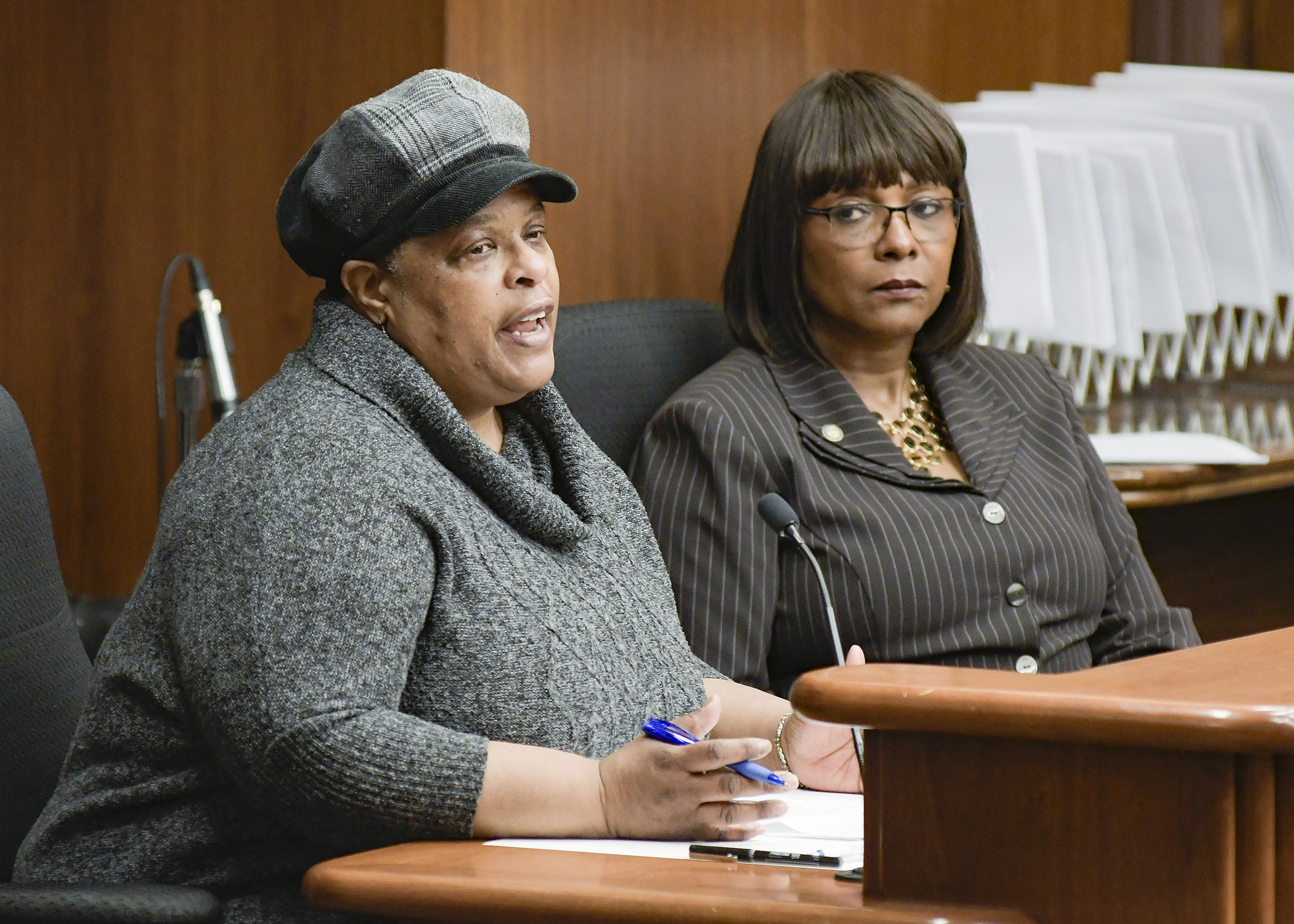Task force proposed to study how to help kids shake past traumas

Instead of paying attention in school, Jacquie Thomas’ mind was somewhere else.
“Because what was going through my head was, ‘Are we going to be running down the street again?’” Thomas told a House subcommittee Wednesday, while getting choked up.
Thomas grew up in a home with domestic violence. And like many children who experience traumatic events when they’re young, it disrupted her ability to learn.
Sponsored by Rep. Rena Moran (DFL-St. Paul), HF3246 hopes to help children going through these situations by creating a task force to study and report on a plan for a trauma-informed approach throughout the state. The task force would be made up of people from a variety of services and agencies, including members of law enforcement, social services, education and health care professionals.
The House Subcommittee on Childcare Access and Affordability approved the bill and referred it to the House Health and Human Services Reform Committee. There is no Senate companion.
“This is a really, really integral part of the overall child care program that is lacking,” said Rep. Tony Albright (R-Prior Lake). But he and Rep. Ron Kresha (R-Little Falls) made several suggestions in hopes of making the bill – and the task force – even better. Among them: amending the task force’s tight timeline so the group has longer to work on the comprehensive issue, reducing the number of spots on the task force, and making sure both Greater Minnesota and the Twin Cities metropolitan area are represented.
Moran said she would use their suggestions to bring an amendment forward at a future committee stop.
What is a trauma-informed approach?
When a child experiences multiple traumatic events it can lead to their brain getting stuck in flight, fight or freeze mode, explained Emma Juon, educational services manager for People Serving People.
This can make a child act out or not pay attention, which can lead to less time in the classroom and lower grades. And these problems can follow children throughout their lives.
The idea behind trauma-informed care is to stop that cycle by making a child feel supported and understood – instead of asking “What’s wrong with you?” caregivers ask “What happened to you?” Juon said.
The caregiver doesn’t assume a child is acting out because they just want to push their buttons, instead they understand the child learned those behaviors and they use the trauma-informed approach to help change them.
Supporters say there’s scientific evidence showing a trauma-informed approach results in better outcomes for children, and as a result will help them later in life.
“If we have this multi-level approach at the community level, at the state level, at the system’s policy level – what we could change is pretty amazing,” said Becky Dale, the chief program officer at Minnesota Communities Caring for Children. “We could make some remarkable and amazing changes that could impact many, many of the issues facing our state.”
Related Articles
Search Session Daily
Advanced Search OptionsPriority Dailies
Legislative leaders set 2026 committee deadlines
By Lisa Kaczke Legislative leaders on Tuesday officially set the timeline for getting bills through the committee process during the upcoming 2026 session.
Here are the three deadlines for...
Legislative leaders on Tuesday officially set the timeline for getting bills through the committee process during the upcoming 2026 session.
Here are the three deadlines for...
